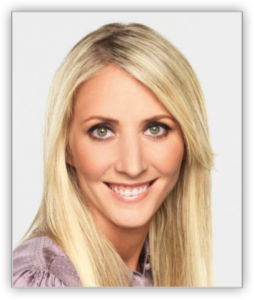The “Ask Sarah” Series
 For parents, the time following your child first receiving a diagnosis of an autism spectrum disorder or another developmental disorder is an overwhelming and chaotic time. After the initial shock of the diagnosis has worn off, a very common reaction of family members is to jump right in to start “tackling the problem” and to do the best they can to “fix” their child. This usually involves a great deal of research – asking questions of doctors and other professionals, spending hours on the internet, and reading books.
For parents, the time following your child first receiving a diagnosis of an autism spectrum disorder or another developmental disorder is an overwhelming and chaotic time. After the initial shock of the diagnosis has worn off, a very common reaction of family members is to jump right in to start “tackling the problem” and to do the best they can to “fix” their child. This usually involves a great deal of research – asking questions of doctors and other professionals, spending hours on the internet, and reading books.
One thing which quickly becomes apparent is that speech and language therapy is critical for children on the spectrum. In addition to the scientific research, which shows that children on the spectrum usually have moderate to severe speech and language deficits and which suggests that better language leads to improvements in a variety of other aspects of your child’s life, communication is a basic human function. It’s only natural for every family to want their child to have a functional communication system in place as soon as possible.
In the coming weeks, I’ll be posting a series of questions that I have received from parents, followed by a short answer from me, and then a series of additional pointers on the same subject. I’m selecting the questions because they are among the most common questions I get, so I’m hoping that they will be applicable to many families of children who have been recently diagnosed.
The answers are based on my clinical experience. I am the senior speech language pathologist at an early intervention program located on the campus of a major research university. In my (admittedly biased) opinion, I think our program is the best on the West Coast, and one of the best in the country, for the treatment of young children with autism and other developmental disorders. I believe that one of the reasons we’re so successful is because we are a multidisciplinary team – we have everyone from psychiatrists to psychologists, teachers trained in Applied Behavior Analysis, play, joint attention, and a variety of other techniques, occupational therapists, recreational therapists, social workers, nurses, and my personal favorite – speech–language pathologists. I’m also the founder and director of Scheflen Speech–Language Pathology, Inc., my private practice in Santa Monica, California, where together with my colleagues I diagnose and provide a variety of therapies for children, many of whom have autism or a related developmental disorder.
You may be wondering why a speech–language pathologist is answering these questions, instead of a psychiatrist, neurologist, or developmental pediatrician. Core deficits in autism include language, play, and social skills. Speech–language pathologists have training to help with all of those deficits, and I hope that I can use my training and clinical experience with hundreds of children to help parents answer some of their questions.
My intent is NOT to try to replace your speech therapist, or to try to enable or empower you to do so. There is no substitute for “hands on” speech and language therapy from a qualified speech–language pathologist! Instead, my goal is to give you sort of an “owner’s manual” for your child’s speech therapy – so that you and your child can work with your existing therapists (or find some great therapists, if you don’t already have a team in place) to make the most of, and get the most from, that course of speech and language therapy.
Because I want this series to be helpful to you as the parent or family member of a child on the autism spectrum, I will do my best to avoid the professional “jargon” which is used by speech–language pathologists and other professionals who work with children with autism, and to put my answers in plain English, using examples and explanations when technical or professional terms are unavoidable.
Please note that I am not a medical doctor, and these posts do not constitute medical advice of any kind. In addition, please note that it is impossible for me to provide professional advice as a speech–language pathologist which is tailored individually for your child. The best that I can do is to relate general advice which I have found works well for many children on the autism spectrum or who have other developmental disabilities. As previously mentioned, you’ll need to work closely with your child’s speech–language pathologist(s) and the rest of your child’s team who are “hands on” with your child to develop the best treatment plan for your child and get the best possible outcome for your child. My hope is that this series helps guide you on your journey with your child to achieve that result.
If you have a question for Sarah, you can submit your questions to Ask Sarah.
Sarah Clifford Scheflen, M.S., CCC-SLP, is a practicing speech language pathologist who specializes in providing therapy to children, including children with autism spectrum disorder and other pervasive developmental disorders. Sarah works in a clinic at a major research university in Los Angeles, California and also has a private practice. While working with children, Sarah uses a variety of techniques, including video modeling, to teach speech and language, social and other pragmatic, and play skills.

